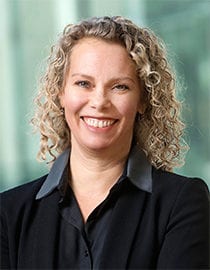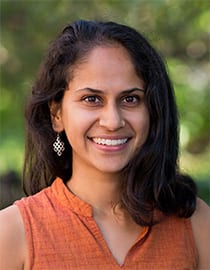
By Gwyneth K. Shaw
A new report from Berkeley Law’s International Human Rights Law Clinic and the Gulf Centre for Human Rights finds that advocates across the Persian Gulf region and neighboring countries are increasingly being targeted by governments using anti-cybercrime and other criminal laws to stifle their online expression.
“Who Will Be Left to Defend Human Rights? Persecution of Online Expression in the Gulf and Neighboring Countries” examined Bahrain, Iran, Iraq, Jordan, Kuwait, Oman, Qatar, Saudi Arabia, Syria, and the United Arab Emirates. The 270-page report found 225 credible incidents of online freedom of expression violations against human rights defenders (HRDs) between May 2018 and October 2020.
Berkeley Law clinical students found that these countries routinely targeted online expression critical of the government, with journalists a frequent victim. Advocates for minorities within countries, and women, were scrutinized particularly heavily. In many cases, human rights defenders were jailed — often en masse — to both tamp down their message and quell anyone else from speaking up.
Except in Iraq, which is still considering its own version, each of the studied nations has adopted anti-cybercrime laws that function as draconian restrictions on freedom of expression, counter to standards adopted across the globe. With these laws in the arsenal, the report says, “a clear trend that emerges is of authorities relying on a variety of laws that impermissibly restrict online expression to target HRDs for communicating views online that are critical of the government or its policies.”
The report offers a human rights analysis of the relevant domestic laws in each country, serving as an accessible resource for advocates and policymakers.

In addition to using anti-cybercrime and other criminal laws, the researchers found, governments wielded the powers of surveillance, arbitrary arrests, detention, and even enforced disappearances and torture. Iranian and Iraqi authorities cooperated to arrest Iranian journalist Ruhollah Zam in Iraq and take him to Iran where authorities tried and executed him for his reporting on government protests for an online news channel, and Washington Post columnist Jamal Khashoggi was killed at the Saudi consulate in Turkey, allegedly at the behest of the Saudi government.
The United Nations and other governing bodies have largely let these laws bloom across the region, Berkeley Law Professor and International Human Rights Law Clinic Director Laurel E. Fletcher said at the international briefing where the report was unveiled. Fletcher is also the director of the school’s Clinical Program and co-director of the Miller Institute for Global Challenges and the Law.
“This gap can be understood as the result of insufficient integration of human rights concerns across U.N. sectors involved in anti-cybercrime law,” she said. “And while governments throughout the region are immediately responsible for the violations we document, the violations also reflect the attention deficit of the international community.”
Suggested steps
The report includes a raft of recommendations aimed at the studied states, the U.N. Human Rights Council, and all nations. They include repealing the laws being used to target advocates that don’t meet global human rights standards, decriminalizing defamation, and revising anti-cybercrime laws to protect legitimate expression about human rights violations, especially for journalists.
The report also urges the U.N. Office of the High Commissioner for Human Rights to study, track, and take action against abusive surveillance regimes in the studied countries, and proposes that all nations stop buying, using, selling, and transferring surveillance technology.

“Our recommendations really underscore the need for regional and international collaboration,” Clinic Teaching Fellow Astha Sharma Pokharel said at the briefing.
Fletcher hopes the report can serve as a blueprint for true reforms.
“State surveillance regimes’ reliance on third-party surveillance technologies have huge human rights implications, which is an area that cries out for further investigation. Another horrifying trend is transnational cooperation to persecute human rights defenders,” she said. “When we have states committing human rights violations outside of their territory with the cooperation of the territorial state, we are confronting truly globalized persecution of human rights defenders.”
Khouloud Al-Khatib, a Lebanese human rights activist and law professor, called the report’s findings crucial t because of the importance of online communication to advocacy movements.
“I think it’s going to be a very valuable asset for defenders, for academics, and also for researchers and students,” she said during the unveiling event.
Jarring revelations
Harriet Steele ’22, one of several Berkeley Law students who worked on the project, helped identify the 225 incidents using independent sources. They included published responses from U.N. Special Procedures communications alleging freedom of expression violations, human rights reports from international and regional human rights organizations, and media reports from international, regional, and national outlets.

Steele says she learned a lot from the project. While she wasn’t surprised that the United States was implicated in places — the government has supported, for example, the Saudi/UAE-led coalition in the Yemeni civil war, which has perpetrated horrific atrocities, and cracked down on human rights activism — the directness of that involvement struck her.
“In the context of Project Raven, the UAE’s surveillance program that former National Security Agency employees helped to create, targets included women’s rights activist Loujain al-Hathloul,” Steele says. “Perhaps this underscores that the human rights concerns the report discusses — including surveillance, as well as restrictions on civic space, persecution of minority groups and women, and torture — are not confined to these 10 countries, or to the Gulf region.
“They are global phenomena.”
The opportunity to work on the project as a student was an honor, Steele says, and a chance to learn from other clinical students, her supervisors, and their nonprofit partners.
“This experience has cemented my desire to pursue international human rights work after graduation,” she says.